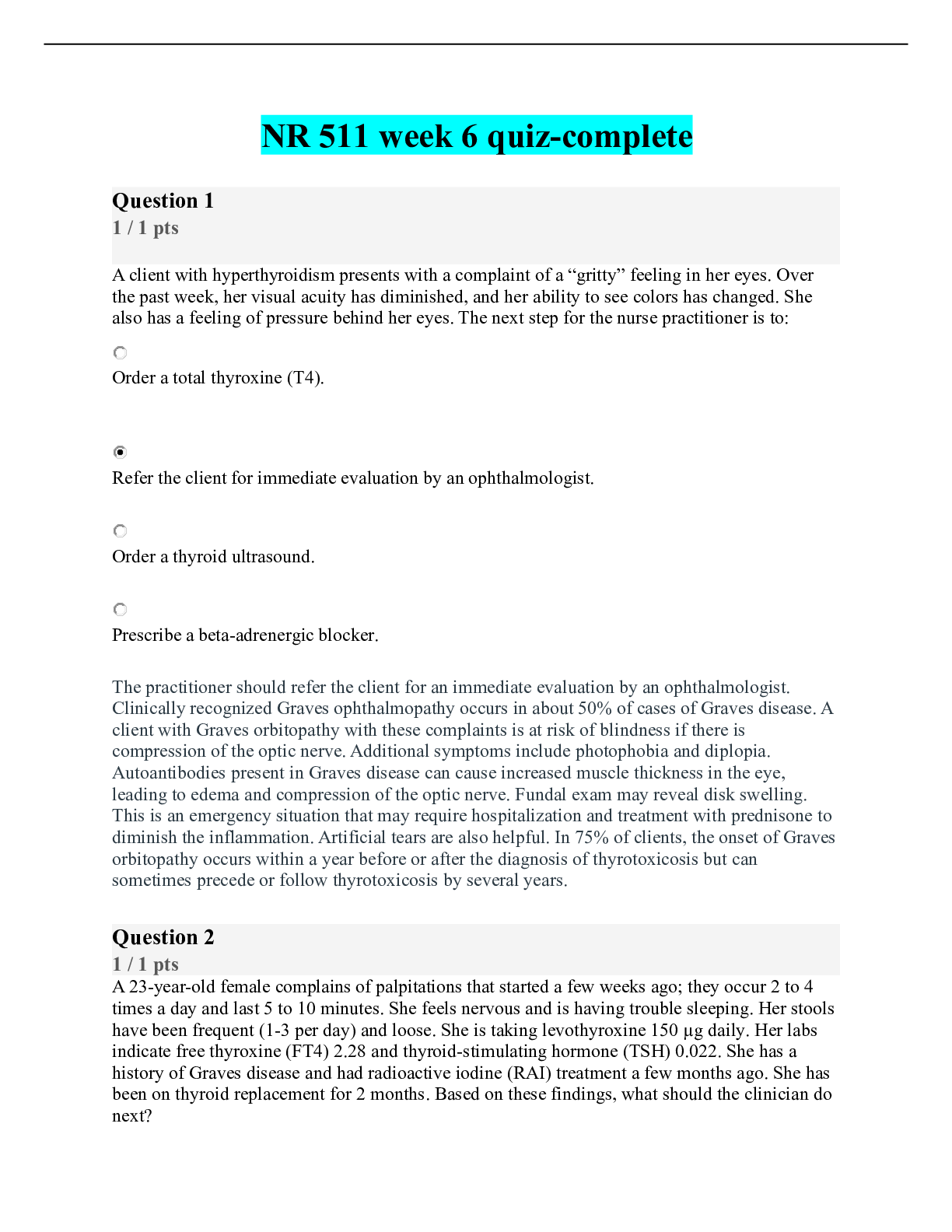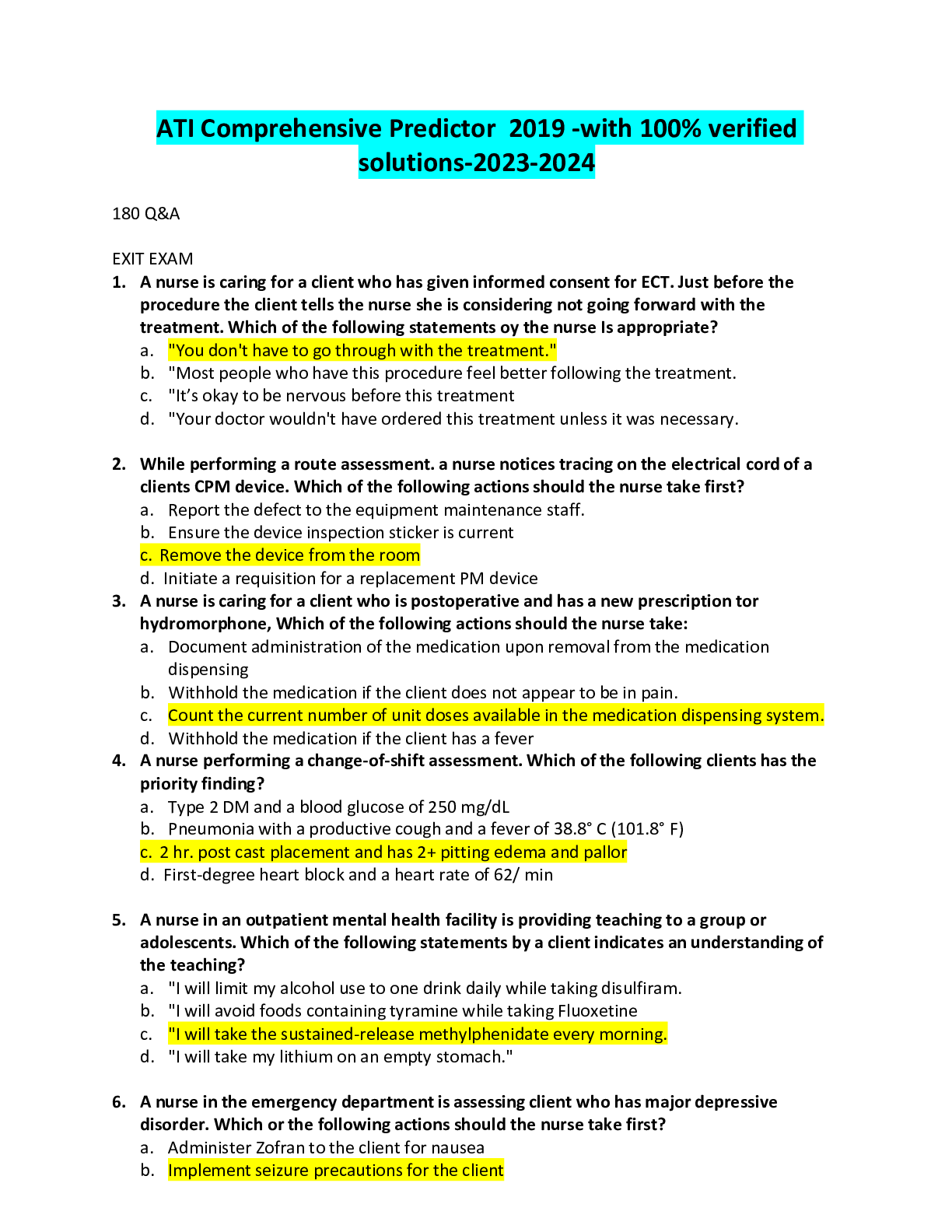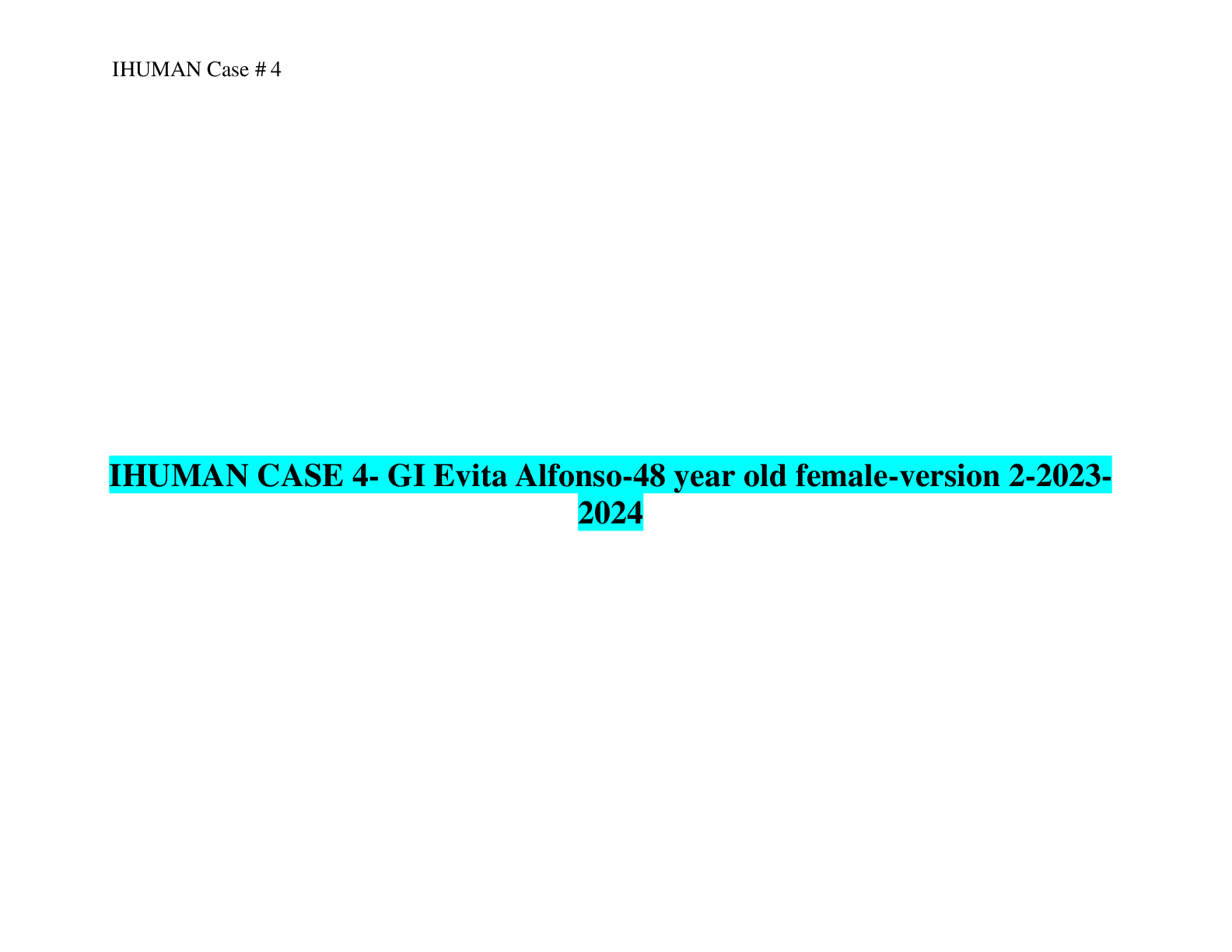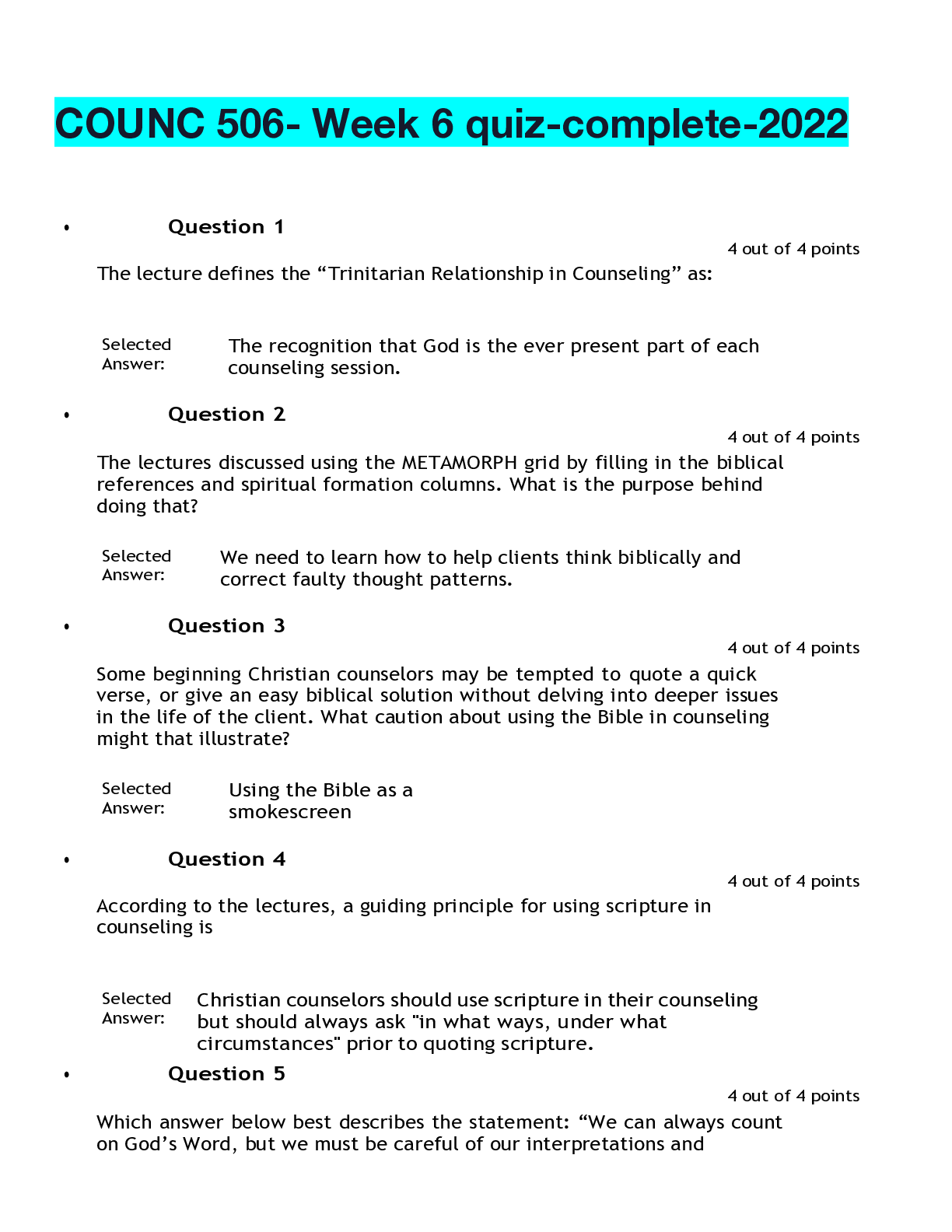NR 511 week 6 quiz-complete
Document Content and Description Below
A client with hyperthyroidism presents with a complaint of a “gritty” feeling in her eyes. Over the past week, her visual acuity has diminished, and her ability to see colors has changed. She als... o has a feeling of pressure behind her eyes. The next step for the nurse practitioner is to: Order a total thyroxine (T4). Refer the client for immediate evaluation by an ophthalmologist. Order a thyroid ultrasound. Prescribe a beta-adrenergic blocker. The practitioner should refer the client for an immediate evaluation by an ophthalmologist. Clinically recognized Graves ophthalmopathy occurs in about 50% of cases of Graves disease. A client with Graves orbitopathy with these complaints is at risk of blindness if there is compression of the optic nerve. Additional symptoms include photophobia and diplopia. Autoantibodies present in Graves disease can cause increased muscle thickness in the eye, leading to edema and compression of the optic nerve. Fundal exam may reveal disk swelling. This is an emergency situation that may require hospitalization and treatment with prednisone to diminish the inflammation. Artificial tears are also helpful. In 75% of clients, the onset of Graves orbitopathy occurs within a year before or after the diagnosis of thyrotoxicosis but can sometimes precede or follow thyrotoxicosis by several years. A 23-year-old female complains of palpitations that started a few weeks ago; they occur 2 to 4 times a day and last 5 to 10 minutes. She feels nervous and is having trouble sleeping. Her stools have been frequent (1-3 per day) and loose. She is taking levothyroxine 150 µg daily. Her labs indicate free thyroxine (FT4) 2.28 and thyroid-stimulating hormone (TSH) 0.022. She has a history of Graves disease and had radioactive iodine (RAI) treatment a few months ago. She has been on thyroid replacement for 2 months. Based on these findings, what should the clinician do next? Decrease the levothyroxine dosage. Increase the levothyroxine dosage. Start propranolol every 8 hours. Keep the dosage the same. It appears that she may be overcorrected. The usual dosage of thyroid replacement is 1.6 µg/kg/d. She could skip a dose and then resume at a lower dosage of 125 to 137 µg per day. In an older individual, the lower dose would be preferred because overcorrection can lead to atrial fibrillation. She should take the levothyroxine on an empty stomach with a full glass of water and wait 30 minutes before eating for maximum absorption. A 72-year-old obese male has gout. When teaching him about diet, which of the following should the clinician advise? CONTINUED..... [Show More]
Last updated: 2 years ago
Preview 1 out of 9 pages

Buy this document to get the full access instantly
Instant Download Access after purchase
Buy NowInstant download
We Accept:

Reviews( 0 )
$11.00
Can't find what you want? Try our AI powered Search
Document information
Connected school, study & course
About the document
Uploaded On
Mar 27, 2022
Number of pages
9
Written in
Additional information
This document has been written for:
Uploaded
Mar 27, 2022
Downloads
0
Views
127















